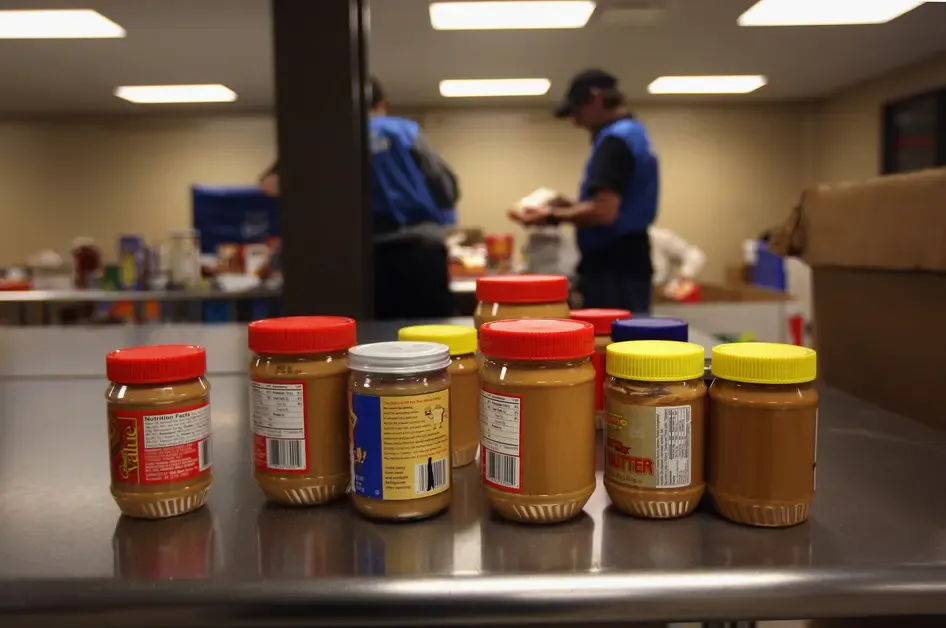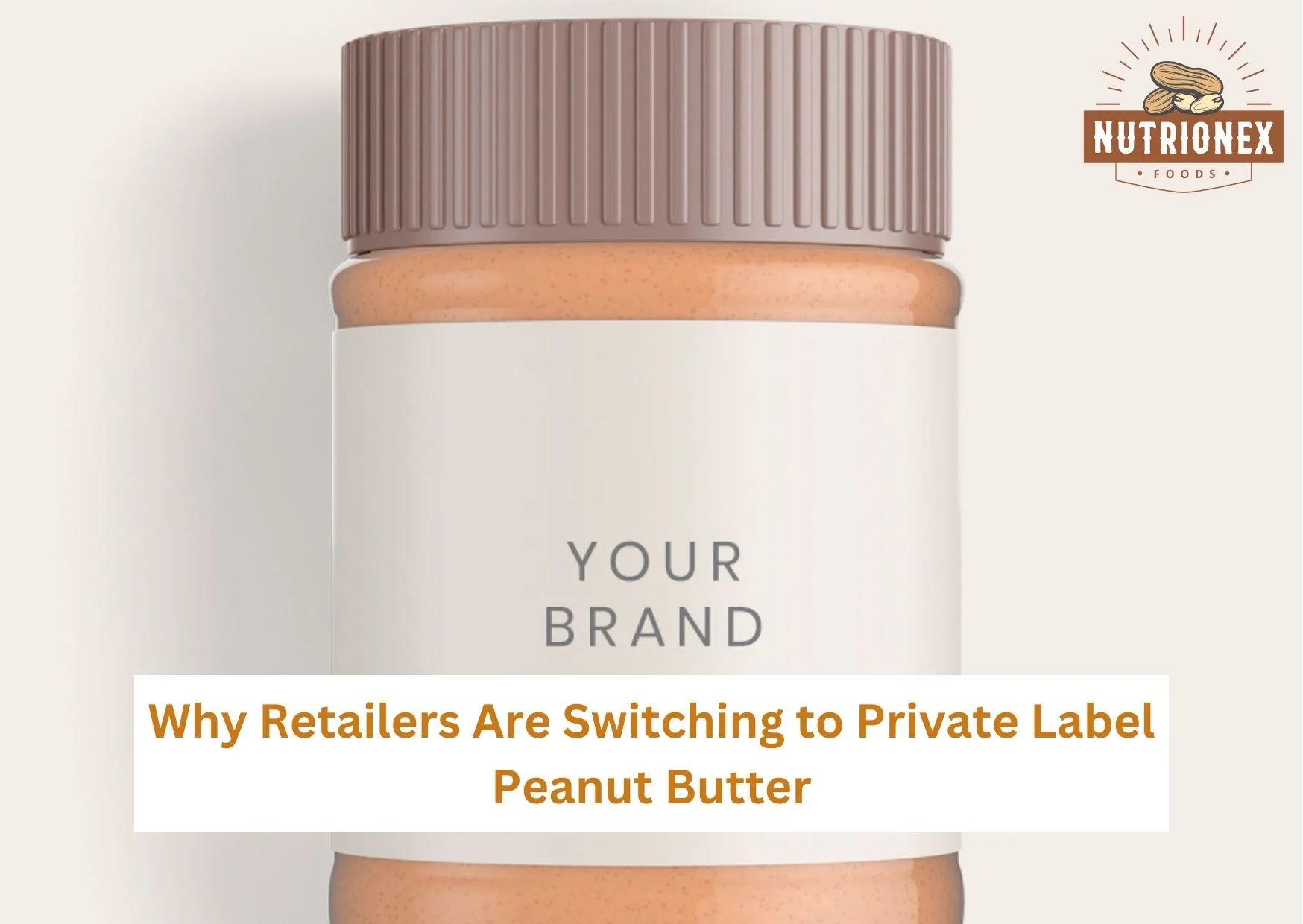
Why Retailers Are Switching To Private Label Peanut Butter
Private label products have greatly and quickly remade the grocery retail landscape over the last decade. It’s no longer the realm of a lower-cost, generic aspect rather a powerful business strategy that works for retailers and consumers. Peanut butter is, among other private label categories, a prime example of this transformation. In today’s market, which continues to shift, is increasingly influenced by consumer preferences and offers opportunities for higher profitability, retailers around the globe are investing more heavily in their private label peanut butter products. Instead of cost-cutting, this shift is about making quality, trusted products that fulfil the modern consumer while giving the retailer greater control of their brands.
What Is Private Label Peanut Butter?
Peanut butter is a privately labeled product made by third-party companies and sold with the retailer's name instead of the national or international brand name. Unlike yesterday's image, numerous private label peanut butters are currently made by those same manufacturers that create major national brands, so the quality as well as taste are likewise equal. These manufacturers often partner with retailers to do custom recipe work, adjust ingredient lists and come up with packaging that they know will suit their customer base. This means private label peanut butter can compete against legacy brands on flavor, nutrition and packaging and often at a better price to boot.
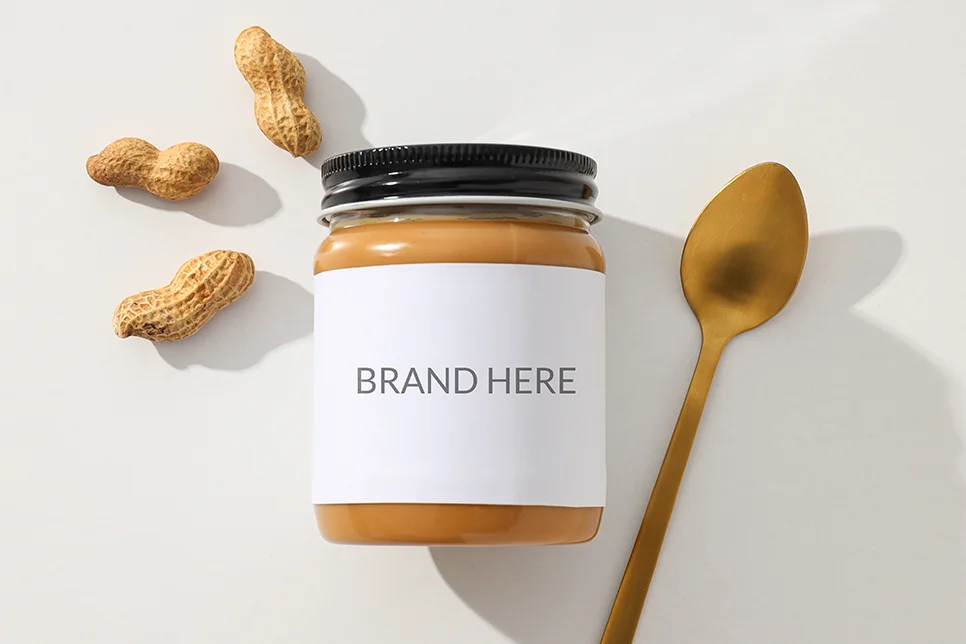
Key points:
• Produced by trusted third-party manufacturers
• Sold under the retailer’s own brand name
• Quality meets or exceeds national brands
• Allows for tailored recipes and packaging
Why Retailers Favor Private Label Peanut Butter
Higher Profit Margins
One of the strongest incentives for retailers to develop private label peanut butter is the opportunity to significantly increase profit margins. Advertising, brand licensing and promotional campaigns absorb huge outlays from national brands, which are in turn passed on cost-wise to the retailer and from there, to the consumer. With private label products, these costs are cut by a knowledgeable retailer that can then offer prices competitive with other branded stores while keeping a bigger share of the revenues. When you make a staple of categories such as peanut butter, whose demand exists daily and whose production costs are relatively stable, this is a valuable financial advantage.
Benefits include:
• Reduced marketing and branding expenses
• Higher profit per unit sold
• Competitive pricing attracts cost-conscious shoppers
• Enhances retailer profitability and sustainability
Enhanced Supply Chain Control
Through private label peanut butter, retailers can take more of their supply chain in-house, from sourcing ingredients to packaging decisions. Through this control, companies obtain better control of inventory, faster response to market changes and lower costs. In today’s increasingly volatile global supply chain, where disruption and delays are the norm, having tight control over supply and production timelines is a real strategic advantage.
Advantages include:
• Greater flexibility in responding to supply chain challenges
• Improved inventory and production planning
• Ability to source ingredients responsibly
• Ensures consistent product quality and availability
Meeting Consumer Expectations for Quality and Value
Today’s shoppers are looking for quality and ingredient transparency, but, in addition, they want value for their money. To say they have, private label peanut butters have adopted simple, clean labels with not a single unnecessary additive or preservative in sight. To cater to health-conscious consumers, many retailers have added organic, non-GMO and specialty varieties to many of their private label lines. As well as meeting consumers’ nutritional needs, this approach increases the trust and loyalty towards the retailer’s brand.
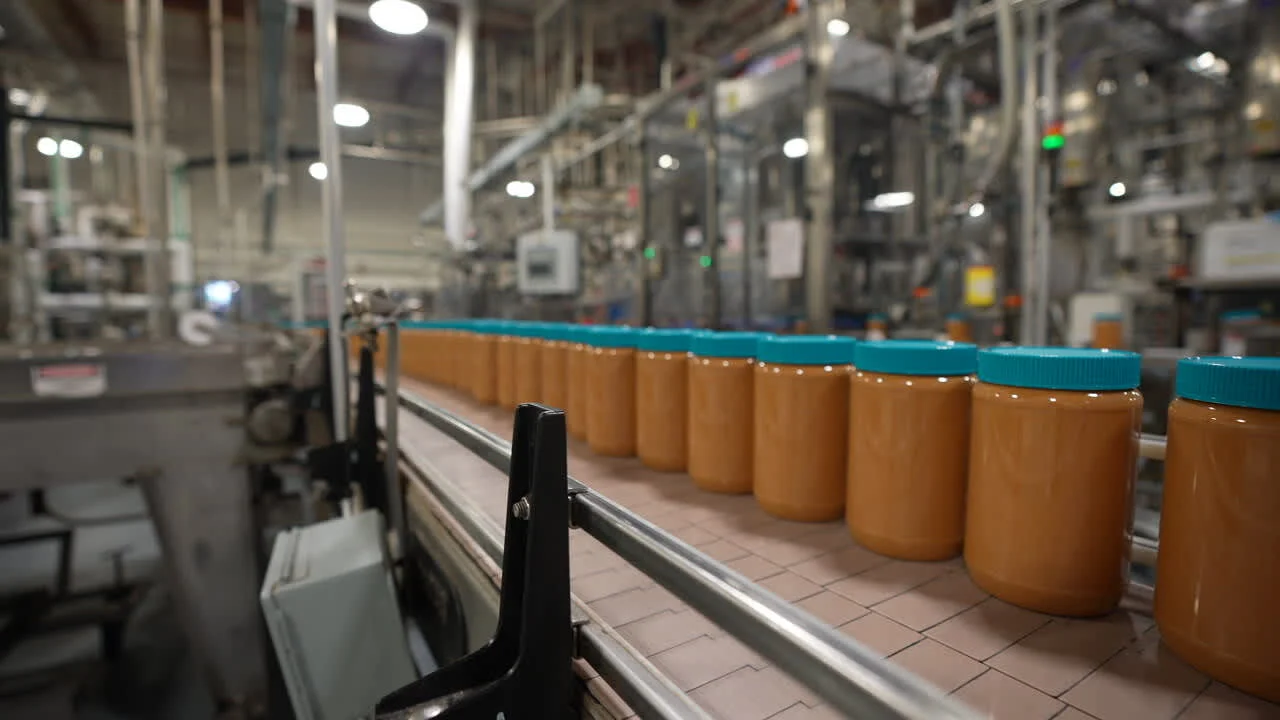
Why consumers choose private label peanut butter:
• Minimal and natural ingredient lists
• Availability of organic and specialty options
• Comparable taste and nutrition to national brands
• Transparent labeling builds confidence
Building Brand Loyalty and Differentiation
Retailers investing in private-label peanut butter are helping the business to make unique products that are differentiated from those of competitors. Few things give a coffee shop or café an edge as some differentiation, and this can be driven by offering exclusive flavors, packaging, or formulations that aren’t found elsewhere. And finally, robust and eye-catching eco-friendly packaging further adds appeal as well as strategic in-store placement with promotions driving visibility and sales.
Branding strategies include:
• Unique, attractive packaging designs
• Exclusive flavors or product variations
• Loyalty program incentives
• Prominent shelf placement and marketing
Inflation and Price Sensitivity
Rising grocery costs due to inflation mean more consumers are seeking ways to still have quality, but not overpay. Savings are 10-30% on private label peanut butter compared to a national brand and shoppers don’t have to sacrifice taste or nutrition for their money. Not only does this affordability appeal to cost-conscious families, but middle and upper-income consumers see the value proposition.
Benefits amid inflation:
• Lower price points without quality trade-offs
• Savings help families stretch grocery budgets
• Attractive option across income levels
• Maintains retailer margins despite rising commodity costs
Customization and Product Innovation
Unlike national brands, retailers can customize their private-label peanut butter to better meet regional tastes or niche dietary needs. This affords us the opportunity for innovation in flavour profiles; honey-infused, cinnamon spiced or no salt added varieties, as well as different textures; creamy or crunchy. Retailers can meet food trends and consumer preferences quickly by using this level of customization.

Customization options include:
• Varieties with added natural flavors
• Low-sodium or no added sugar options
• Different textures (creamy, crunchy)
• Specialty formulations targeting health trends
Commitment to Sustainability and Ethical Sourcing
Many consumers are now demanding sustainability, and retailers have brought responsible sourcing into private label strategies. Peanut butters by many store brands now have all sorts of certifications: Fair Trade, Rainforest Alliance, USDA Organic, to name a few, so that they appeal to the equally ethically minded. Retailers spare no penny when it comes to packing eco-friendly packaging to maintain the positive brand image, and shrinkwrap, in particular, is a form of eco-friendly packaging.
Sustainability initiatives include:
• Ethical peanut sourcing certifications
• Use of recycled or biodegradable packaging
• Transparent supply chains promoting social responsibility
• Meeting consumer demand for green products
Market Impact: Growing Share of Private Label Peanut Butter
It has been only a few short years since private label food products began to take hold of the grocery market, commanding over 20% of US grocery sales and even more in international markets. Given how popular and versatile a pantry staple of food, peanut butter is, it has been no stranger to this trend. Retailers are still adding more private label products, investing in quality, variety and marketing to grow the dollar share of this high-margin category.
Market trends:
• Double-digit growth rates in private label foods
• Increased shelf space for store brands
• Retailer dominance in product assortment decisions
• Pressure on national brands to innovate and reduce prices
Consumer Benefits from the Shift to Private Label
Private label peanut butter growth means more choice, better pricing and better options for you, the consumer. With the rising quality of private labels and growing transparency, more shoppers are happy to make the change.
That shift also inspires national brands to lift their products — and that, by default, is a boon to all consumers.
Consumer advantages include:
• Access to organic and specialty peanut butters at lower prices
• Clean labels without excessive additives
• Equal or superior taste and nutrition compared to name brands
• Availability through multiple shopping channels
Why Nutrionex Is the Top Choice for Private Label Peanut Butter
If retailers do decide to roll the dice and switch to private label peanut butter, they need to partner with a firm that knows what it’s doing. Nutrionex Foods is a leading private label peanut butter manufacturer and exporter serving the world with industry-leading tailored solutions meeting global quality, quality standards and consumer expectations. Having spent years mastering the nut butter industry, Nutrionex delivers the retailer with high-quality peanut butter products that can be customized to taste profile, ingredient preference and packaging needs.
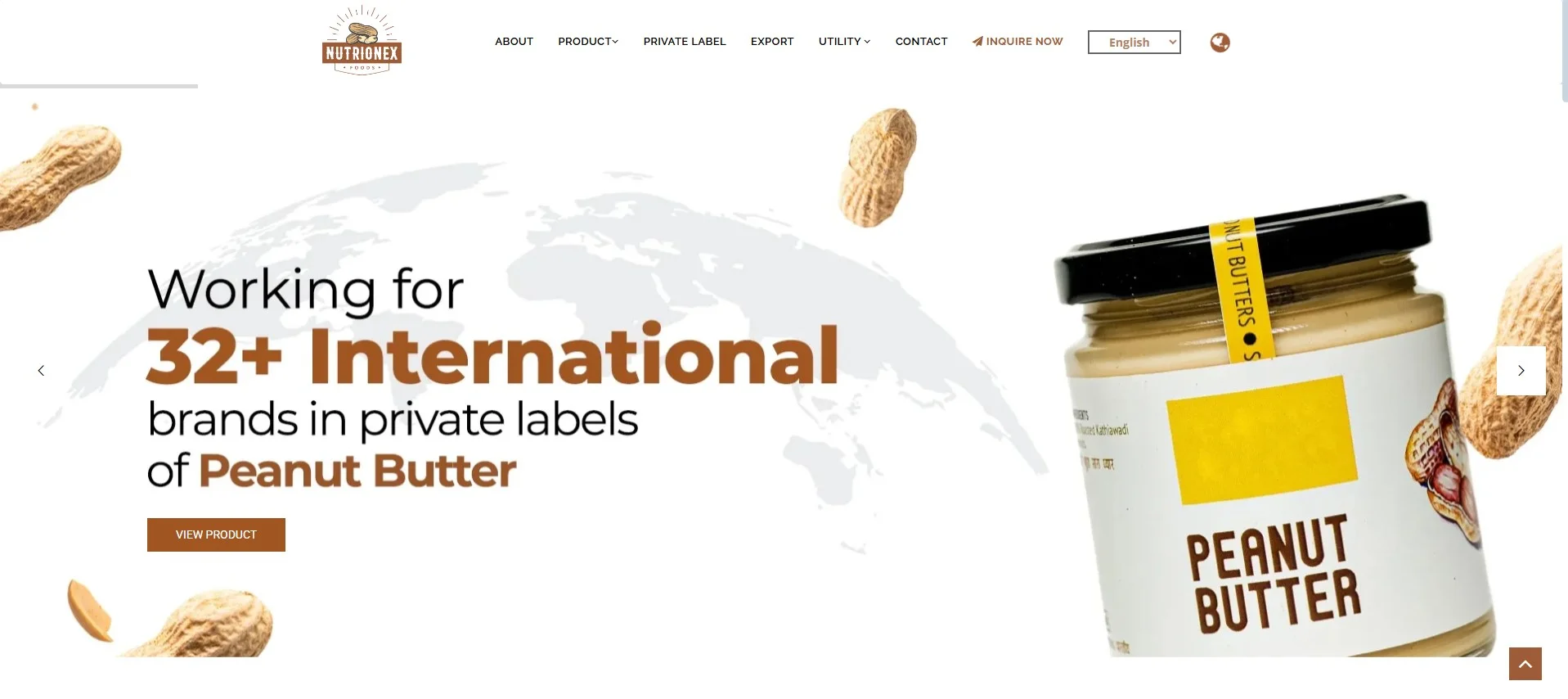
Nutrionex works closely with retailers to guarantee consistent product quality, timely deliveries and competitive pricing so brands can build loyalty with customers from premium offerings at competitive prices. With their state of the art manufacturing facilities, they follow strict food safety protocols and certifications making them the best partner for private label ventures around the globe.
• Customized Flavour: Nutrionex provides customized Flavour, specializing in peanut butter varieties such as creamy, crunchy, organic or with flavour. It provides an opportunity to retailers to meet different consumer tastes.
• Global Export Capability: Nutrionex has extensive capacity and capability to export to markets throughout the world. This guarantees that retailers gain international exposure for their private label.
• Quality Assurance: Their peanut butter has integrity because they start with carefully sourced raw materials, making sure their peanut butter is pure, fresh and delicious every time.
• Sustainable Practices: Nutrionex uses sustainable sourcing by sourcing ingredients from sustainable sources and delivering them within sustainable packaging solutions that match the needs of the modern customer.
• Flexible Packaging: From jars to sachets, Nutrionex offers customized packaging that gives the product shelf appeal and distinctiveness.
Retailers partnering with Nutrionex can spend their time marketing and distribution, knowing that the manufacturing is done with excellence by a company focused on excellence. That’s why so many retailers are shifting to private label peanut butter produced with Nutrionex as their partner.
Conclusion
Private label peanut butter is a clear case study of the changing grocery retail environment. Private labels are the growth vehicle of choice among retailers looking to increase margins, regain control of their supply chain and meet the shifting demands of the consumer. It means more quality, affordable choices for consumers to choose from that fit their health and ethical standards. Trust in private labels is on the rise, and it is no longer packaged food’s version of buying white label it’s now where millions of shoppers are putting their money.
